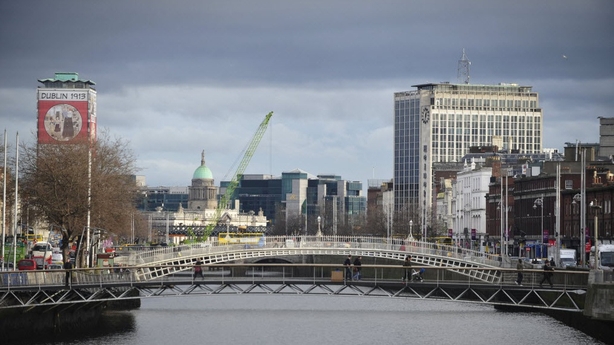The Central Bank has raised its growth forecast for the economy this year by 1% to 4.5%, while it has also revised its 2018 forecast upwards by 0.4% to 3.6%.
Gains in employment and incomes are expected to remain the main driver of growth, and forecasts for export growth have also been revised higher.
In its latest quarterly bulletin - which considers the new economic measurement of GNI* for the first time - the Central Bank warns Brexit and the sensitivity to other potential international shocks continue to pose risks to the Irish economy.
It said inflation remains subdued, which reflects the effect on goods prices of euro appreciation against sterling and weakness in energy prices.
Headline inflation is expected to increase by just 0.3% this year, a downward revision from 0.7%.

Excluding energy, the Central Bank expects inflation to remain flat in 2017 and climb to 1% next year.
The regulator notes job growth is expected to moderate next year following a period of exceptionally strong increases, but still expects 2.1m people to be employed across the country.
Central Bank Chief Economist Gabriel Fagan the revised growth figures "reflect both stronger momentum in the domestic economy and improved prospects for external demand, especially from our European trading partners".
He added: "As a small and open economy, Ireland continues to face economic risks externally. And despite there being little new information emerging to date, it is clear that the economic impact of Brexit on Ireland is set to be negative and material.
"At home, we must continue to prudently monitor the risk of overheating."

